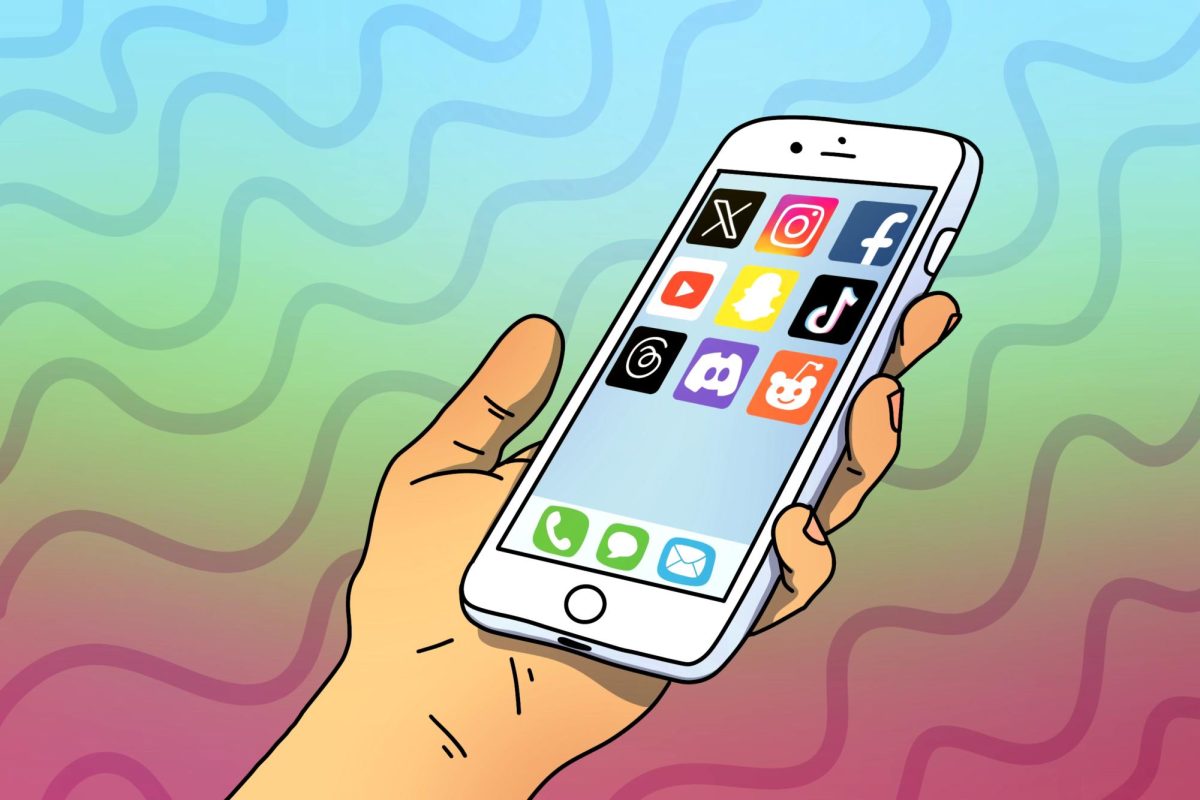Like many other students, I have written countless essays throughout my college career. Some were completely uninspired, with content that depended upon the word count required from professors. Some were written with the fluidity of a Nobel laureate with thesaurus.com open in the tab next to Microsoft Word. The collection of essays that students create in their undergraduate years are the building blocks to cultivating our generation’s voice and refining our use of language.
Last semester, my professor posed a question about students’ verbiage — “Why are kids using the word ‘unalive’ instead of ‘killed’? I’ve never seen that before.” I had only ever seen the word “unalive” used on TikTok, along with scattered symbols in words, all in an attempt to trick the algorithm from barring banned words like “suicide.”
On social media, users have adopted “algospeak,” a strategic lexicon attempting to work around social media’s community guidelines. The struggle between content creators and social media guidelines is not a recent phenomenon, however. Youtube’s demonizations for LGBTQ-related words in 2017 and Instagram’s attempt to moderate pro- disorded eating content by banning related tags are part of the myriad reasons for content creators to begin creating this calculated language to continue pushing content without repercussions.
Although these euphemisms seem to be helpful as far as posting content as users intended, they are altering how young people discuss and handle certain sensitive subjects. Many social media apps have strict guidelines on conversations regarding suicide or death, leading to users crafting hodgepodge strings of calculated words to stay within guidelines.
“One of the accounts I follow, Real Talking Fish, had to start pinning their information in the comments because Instagram was not showing their videos with sound,” said Kaliah Trice, an MFA creative writing candidate at The University of Alabama. As accounts continue to get shunned for using these real words, regardless of the size of the platform, these euphemistic terms will continue to grow in usage.
Such word choices show how young people have been coerced into flippantly communicating very real issues. By concealing vocabulary in order to stay in guidelines, miscommunication is inevitable. Misinterpretations of the guideline-friendly verbiage are already prevalent — for example, a trend used to tell different sexual assault stories hidden behind “mascara” left users commenting on how confused they were by the euphemism. The already-murky communication online platforms lend are becoming seemingly impossible to navigate for users.
“I think that there is something to it, that maybe we’re using these terms in a very serious context but they are being sort of diluted down,” said Shaheen Kanthawala, an assistant professor in the Department of Journalism and Creative Media.
If used appropriately, these online platforms can be perfect mediums to house these important topics.
“They’re also being used for specific reasons because if they are not used, then the content might be potentially censored,” Kanthawala said. The online spaces are not the issue inherently, but the potential unawareness of the user’s speech patterns online versus offline.
Kathawala highlighted the importance of social media’s broad connection for users, referencing online health communities and its active users.
“They find community with people who have common experiences with them where people in their own lives may not,” Kathawala said.
However, she added that it is important for social media users to get a full, educated perspective on topics by utilizing a range of different mediums. If one is simply getting information from social media, they are missing the less censored version of news from newspapers or magazines. Being aware of the different types of language online and offline is imperative in shaping contextualized ideas on these important topics.
Language has the impact of changing how a generation speaks and processes information. Social media’s influence is undeniable regarding language. These platforms can be great foundations for cultivating conversations; however, utilizing only social media to educate yourself on important topics can be damaging to how you speak about them.
If you or someone you know is struggling, please call 205-348-5454 to speak with the University of Alabama’s Police Department and ask for the on-call counselor immediately. Alternatively, call 988 for the Suicide and Crisis Lifeline or the Counseling Center at (205)-348-3863.









